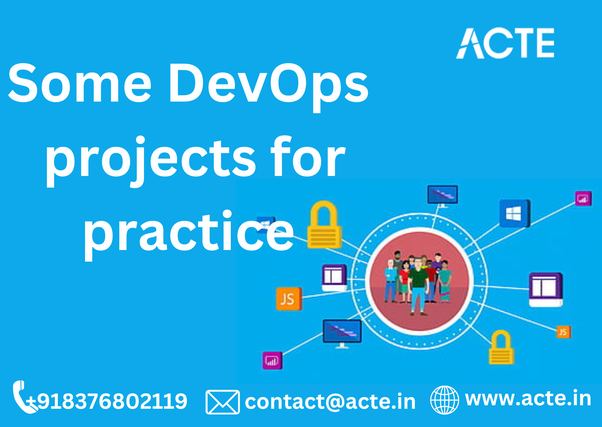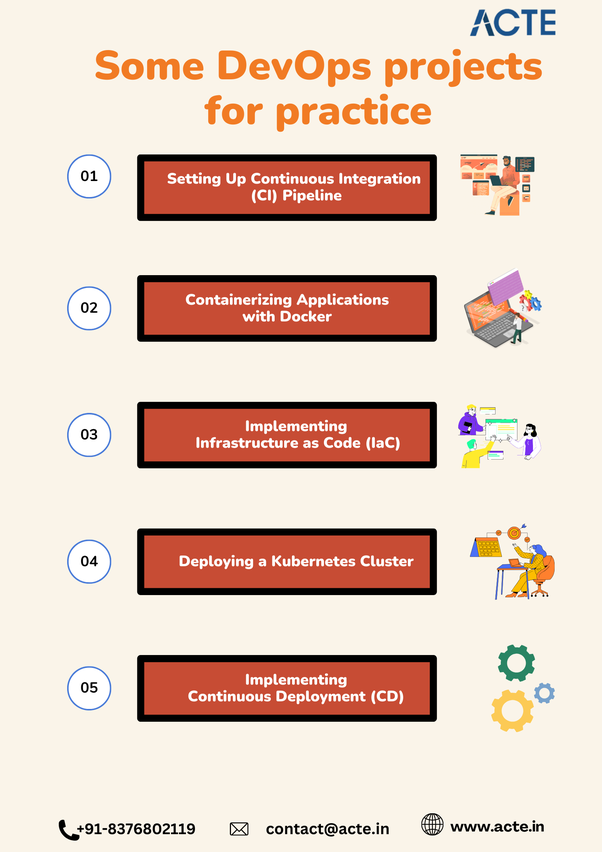Optimizing Performance: DevOps Projects for Scalability and Efficiency
In today's fast-paced digital landscape, where user expectations are constantly evolving, ensuring the scalability and efficiency of software systems is paramount. This is where DevOps practices come into play, offering a holistic approach to software development, deployment, and operations. By integrating development and operations teams, DevOps fosters collaboration, automates processes, and streamlines workflows, ultimately optimizing performance.
In this blog post, we'll explore some essential DevOps projects aimed at enhancing scalability and efficiency in software systems.
Invest in DevOps training in Coimbatore the accelerator for your team’s journey from good to exceptional in the world of software development.
1. Setting Up Continuous Integration (CI) Pipeline
Description: Build a CI pipeline using tools like Jenkins, GitLab CI, or Travis CI.
Steps: Configure a source code repository (GitHub, GitLab, Bitbucket). Set up a CI server (Jenkins, GitLab CI). Create a pipeline script to automate code builds, tests, and deployment.
Benefits: Learn the fundamentals of automating software development processes.
2. Containerizing Applications with Docker
Description: Containerize a simple web application using Docker.
Steps: Write a Dockerfile to define the application environment. Build a Docker image. Run and test the containerized application locally.
Benefits: Understand containerization principles and Docker fundamentals.
3. Implementing Infrastructure as Code (IaC)
Description: Use a tool like Terraform or AWS CloudFormation to provision infrastructure.
Steps: Define infrastructure requirements in code. Use Terraform or CloudFormation to deploy infrastructure on a cloud platform. Validate and manage infrastructure changes through code.
Benefits: Gain hands-on experience in automating infrastructure deployment and management.
4. Deploying a Kubernetes Cluster
Description: Set up a Kubernetes cluster for container orchestration.
Steps: Install and configure a Kubernetes cluster using tools like Minikube or Kubeadm.Deploy and manage containerized applications on the cluster. Explore Kubernetes features like Pods, Services, and Deployments.
Benefits: Learn container orchestration principles and Kubernetes basics. Break free from limitations. Our DevOps online course empowers you to upscale your skills, all from the comfort of your home.
5. Implementing Continuous Deployment (CD)
Description: Set up a continuous deployment pipeline to automate application deployments.
Steps: Extend the CI pipeline to include automated deployment steps. Use deployment tools like Ansible, Chef, or Puppet to deploy applications to target environments. Configure automatic rollback mechanisms for failed deployments.
Benefits: Understand the end-to-end process of automating software delivery.
In conclusion, DevOps practices play a pivotal role in optimizing performance, scalability, and efficiency in software systems. By embracing automation, collaboration, and continuous improvement, teams can overcome scalability challenges, streamline operations, and deliver value to users more effectively. From infrastructure automation to security integration, DevOps projects offer a comprehensive toolkit for achieving scalability and efficiency in today's dynamic IT landscape.

